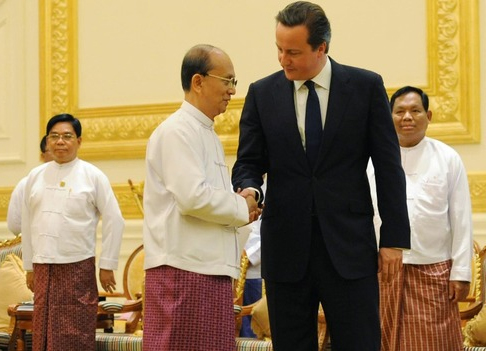A federal armed forces that incorporates all the armed forces of the country into a single entity should be in place, before the West establishes closer military ties with Burma, said Sao Yawd Serk, Chairman of the Restoration Council of Shan State/Shan State Army (RCSS/SSA) yesterday.
 “Or they will just serve to strengthen the hands of the Tatmadaw (Burmese military) against the resistance forces,” he told a meeting held yesterday on the Thai-Burmese border.
“Or they will just serve to strengthen the hands of the Tatmadaw (Burmese military) against the resistance forces,” he told a meeting held yesterday on the Thai-Burmese border.
A participant agreed pointing out that, according to the 2008 constitution, the Burmese military’s self-appointed mission, contrary to other democracies, was to wage war not only against external dangers but also internal ones.
This was the first time the leader of the Shan resistance movement that had concluded a ceasefire with Naypyitaw on 2 December 2011 has spoken publicly in response to recent Britian’s approval to $ 5 million arms export licenses to Burma.
The Burmese military has also been offered training courses in human rights, the laws of armed conflicts and the accountability of armed forces in democracies. “The training should not only be provided to the Burma Army, but also to the resistance armed forces,” he said. “It can wait until a federal armed forces has been formed.”
Many of the ethnic groups have proposed that the Chief Minister of a State/Region be elected and he/she, by virtue of it, automatically becomes the Commander-in-Chief of the armed forces of the state/region concerned.
According to the 2008 constitution, the Chief Minister is appointed by the President. Both of them have no say in military matters.
So far, the RCSS/SSA, like its sister organization in the north, Shan State Progress Party/Shan State Army (SSPP/SSA), has fought more than 100 clashes since the ceasefire. The last one took place in Kyaukme on 24 July.



